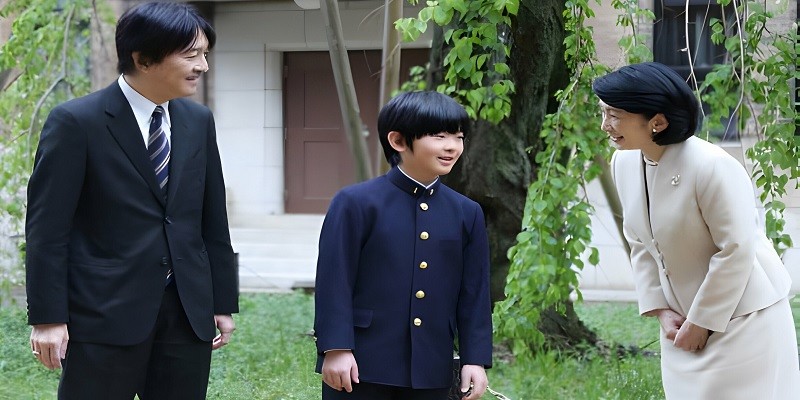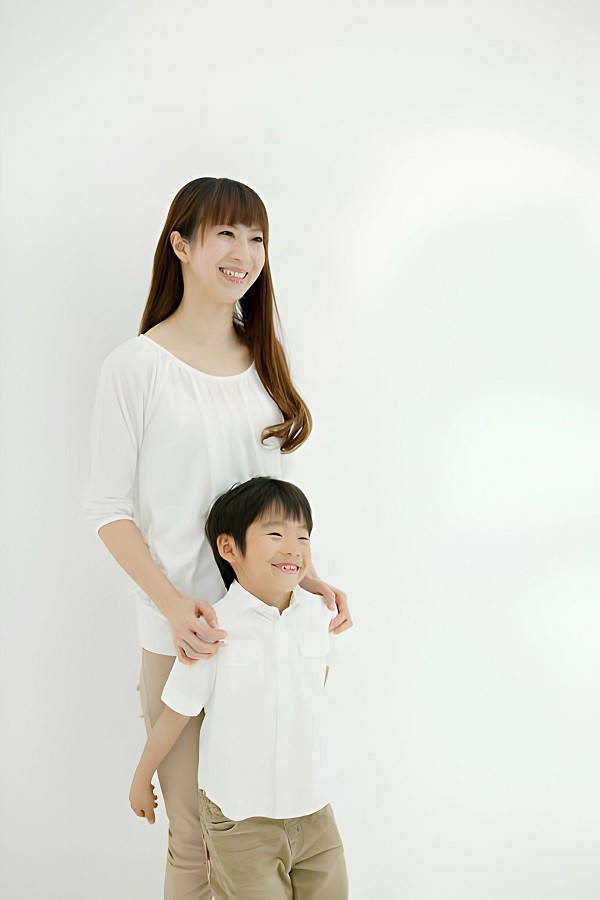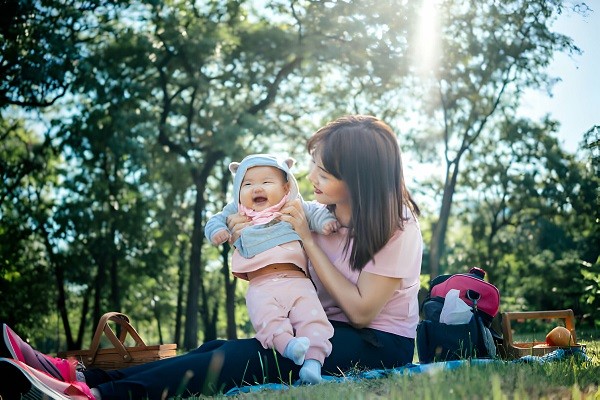Last Updated on January 15, 2025
In Japanese, “Mother” is said as “haha” (母) or “okāsan” (お母さん), while “Mom” is “mama” (ママ) or “okaasan” (おかあさん). Speaking about family relationships in different languages can be fascinating and insightful.
One crucial term that resonates universally is the word for “mother” or “mom. ” In the Japanese language, the maternal figure is referred to as “haha” or “okāsan,” demonstrating the cultural significance placed on the bond between a mother and her children.
Understanding the diverse ways in which familial terms are expressed across languages gives us a deeper appreciation for the nuances of human connections and the unique ways societies acknowledge maternal figures. Let’s delve further into the linguistic richness surrounding the concept of motherhood in Japanese culture.
How To Say Mother In Japanese
In Japanese, the word for mother is “haha” (母) or “okāsan” (お母さん). The word for mom is “mama” (ママ) or “okaasan” (おかあさん). It is common to use “Okaasan” to refer to one’s mother in various situations.
Different Ways To Say Mother In Japanese
Japanese has different ways to express the word “mother” depending on the context and formality.
The Standard Japanese Word For Mother
The standard Japanese word for “mother” is “Okaasan” (お母さん), which is commonly used in daily conversations and is considered polite.
Other Variations Of Mother In Japanese
In addition to “Okaasan”, other variations for “mother” include “Haha” (母), “Hahaoya” (母親), “Ofukuro” (お袋), and “Okaachan or Kaachan” (かぁちゃん).
How To Say Mom In Japanese
Translations For Mom In Japanese
Japanese has various words to refer to mom, each carrying different nuances and levels of formality.
Common Words For Mom In Japanese
Here are some common words used for mom:
- Okaasan (お母さん): This is the most common and neutral way to say “mom” in Japanese.
- Mama (ママ): A more casual way of addressing your mother in Japanese.
- Haha (母): Another word for “mother” in Japanese that is commonly used.
Addressing Someone’s Mother In Japanese
To address someone’s mother in Japanese, you can say “Haha” (母) when referring to your mother or “Okaasan” (お母さん) when speaking about someone else’s mother. “Mama” (ママ) is also commonly used for “mom” in the Japanese language.
How To Address Your Mother In Japanese
In Japanese, when addressing your mother, you can use “Haha” (母) or “Okaasan” (お母さん).
How To Address Someone Else’s Mother In Japanese
If you’re referring to someone else’s mother, it is respectful to use the honorific “Okaasan” (お母さん).
To address your mother, you can use:
- Haha (母)
- Okaasan (お母さん)
When addressing someone else’s mother, it is polite to address them as:
- Okaasan (お母さん)
Children’s Terms For Mother In Japanese
In Japanese, children typically refer to their mothers as “okaasan” (お母さん) or “mama” (ママ). The words “haha” (母) or “okāsan” (お母さん) are used to address mothers in Japanese culture.
How Children Refer To Their Mothers In Japanese
Children in Japan use affectionate terms to refer to their mothers, creating unique and endearing ways to express their love and respect. It’s fascinating to explore the children’s terms for mother in Japanese and understand the cultural significance attached to these expressions.
Examples Of Children’s Terms For Mothers in Japanese
When it comes to addressing their mothers, Japanese children employ several cute and affectionate terms:
- HAHA – 母
- Hahaoya – 母親
- Okaasan – お母さん
- Okaasama – お母様
- Ofukuro – お袋
- Okaachan or Kaachan – かぁちゃん
- MAMA – ママ
Comparison: Haha Vs Okaasan
In Japanese, there are two main words to refer to a mother: “haha” (母) and “okaasan” (お母さん). While both words share the same meaning, they differ in terms of usage and formality.
Differences In Meaning And Usage Of Haha And Okaasan In Japanese
1. Haha (母) – This word is the neutral form of “mother” and is commonly used in official documents or when referring to one’s own mother in conversation. It is more formal and polite compared to “okaasan”.
2. Okaasan (お母さん) – This word is an honorific form of “mother” and is used to refer to someone else’s mother or when speaking respectfully about one’s mother. It is a more casual and familiar term compared to “haha”.
It is important to note that the choice between “haha” and “okaasan” depends on the context and the level of formality required in the situation. While “haha” is commonly used, “okaasan” adds a level of respect and politeness.
Here is a quick summary of the differences between “haha” and “okaasan” in Japanese:
| Word | Meaning | Usage |
|---|---|---|
| Haha (母) | Neutral form of “mother” | Official documents, referring to one’s own mother |
| Okaasan (お母さん) | Honorific form of “mother” | Referring to someone else’s mother, speaking respectfully about one’s own mother |
Overall, both “haha” and “okaasan” are commonly used and understood in Japanese. The choice between the two depends on the context and the level of formality required.
Bonus: Other Japanese Words Related To Mother
In addition to learning how to say “mother” or “mom” in Japanese, there are several other words related to motherhood that you might find useful. Here are some commonly used Japanese words:
Other Japanese Words Related To Motherhood:
- Hahaoya (母親): This word specifically refers to “mother” in terms of biological or adoptive relationship.
- Okaasan (お母さん): This is a more casual and affectionate way to refer to one’s mother. It can also be used as a polite term when referring to someone else’s mother.
- Okaasama (お母様): This is a more respectful and formal term for “mother.” It is often used to address one’s own mother with a higher level of honor or when speaking about someone else’s mother in a formal setting.
- Ofukuro (お袋): Although not as common as the other terms, this word is an affectionate and informal way to refer to one’s mother.
- Okaachan or Kaachan (かぁちゃん): This is a more casual and affectionate term for “mom.” It is often used by children or when speaking familiarly and lovingly.
Now that you know these additional Japanese words related to motherhood, you can choose the one that suits the context and level of formality you require. Whether you are addressing your mother or referring to someone else’s mother, these terms will help you express respect and affection toward the role of motherhood in Japanese culture.
Frequently Asked Questions
How Do Japanese Call Their Mom?
In Japanese, they call their mom “haha” (母) or “okāsan” (お母さん). For mom, it’s “mama” (ママ) or “okaasan” (おかあさん).
What Do You Call Someone’s Mom In Japan?
In Japan, someone’s mom is called “haha” (母) or “okāsan” (お母さん). Mom is called “mama” (ママ) or “okaasan” (おかあさん).
What Does Ka San Mean In Japanese?
“Ka San” in Japanese means mother. It is commonly used to directly address one’s mother.
What Is Mom Japanese In English?
The Japanese word for mother is “haha” (母) or “okāsan” (お母さん). The word for mom is “mama” (ママ) or “okaasan” (おかあさん).
What Are The Japanese Words For Mother Or Mom?
In Japanese, the word for mother is “haha” (母) or “okāsan” (お母さん). The word for mom is “mama” (ママ) or “okaasan” (おかあさん).
Conclusion
In Japanese, expressing love and respect for our mothers is essential. With terms like “haha” and “okaasan,” we can convey our feelings in various contexts. Learning and understanding these nuances is crucial in Japanese culture. Whether it’s a casual conversation or a formal setting, these terms help us communicate our appreciation for our moms.
Mastering these phrases will not only enrich our language skills but also strengthen our relationships with the special women in our lives.



